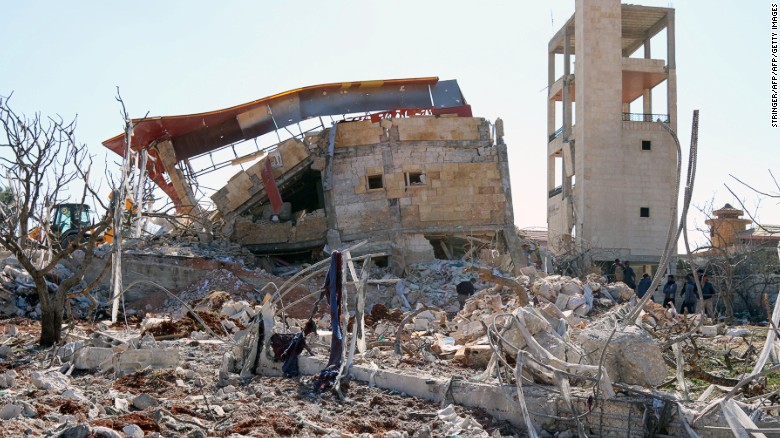By Brittani Howell
Impunity Watch Reporter, The Middle East
DAMASCUS, Syria – On Thursday United States Secretary of State, John Kerry, declared that the Islamic State has committed genocide against Yazidis, Shi’ite Muslims, and Christians in Syria and Iraq. The statement came on the deadline set last year by Congress for the Obama administration to determine whether the Islamic State’s targeting of minority religious and ethnic groups amounted to genocide.

Mr. Kerry stated, “My purpose here today is to assert in my judgment, (ISIS) is responsible for genocides against groups in areas under its control including Yazidis, Christians, and Shi’ite Muslims.” He also stated that, “Daesh is genocidal by self-proclamation, by ideology, and by actions – in what it says, what it believes, and what it does.”
On Monday one chamber of the United States House of Representatives approved a unanimous resolution condemning the Islamic State for trying to eradicating minority communities. The United States is not legally obligated to take a particular action because of the finding of genocide.
Mr. Kerry stated that the Islamic State, “castigates Yazidis as, quote, ‘pagans’ and ‘devil-worshippers,’ and we know that Daesh has threatened Christians by saying it will, quote, ‘conquer your Rome, break your crosses, and enslave your women.’” He continued, “ Shia Muslims, meanwhile, are referred to by Daesh, as, quote, ‘disbelievers and apostates,’ and subjected to frequent and vicious attacks.”
In August 2014, the Islamic State rounded up thousands of Yazidis living in the Nineveh plains of north-western Iraq. The men and boys over age 14 were shot, boys under the age of 14 were forced to convert to Islam and subjected to military training. Women and girls were sold or handed to Islamic State militants as gifts.
In July 2014 the Islamic State killed as many as 1,700 army recruits, most of whom were Shia Muslims, when it captured the Camp Speicher military base outside of Tikrit, a northern Iraqi city.
Christians living in the territory have been forced to chose between converting to Islam, payment of a protection tax, jizyah, or death. In February 2015 21 Egyptian Coptic Christian migrant workers in Libya were beheaded.
Mr. Kerry also stated that “Naming these crimes is important, but what is essential is to stop them.” An Israeli Yazidi activist, Mirza Dinnayi, told CNN in an e-mail, “I am very happy to hear that (the U.S.) will recognize the genocide of Yezidi and Christian minorities.” He continued, “This is an important step to stop the suffering of the prosecuted people under the control of the extremist Islamic groups, specifically ISIS. And this is also important for my community to trust the international community again, because we were left in the hands of Islamic State.”
For more information, please see:
BBC News – Islamic State Committed Genocide, Says US – 17 March 2016
CNN – John Kerry: ISIS Responsible for Genocide – 17 March 2016
Huffington Post – John Kerry Calls Islamic State’s Atrocities Genocide – 17 March 2016
The New York Times – Citing Atrocities, John Kerry Calls ISIS Actions Genocide – 17 March 2016


